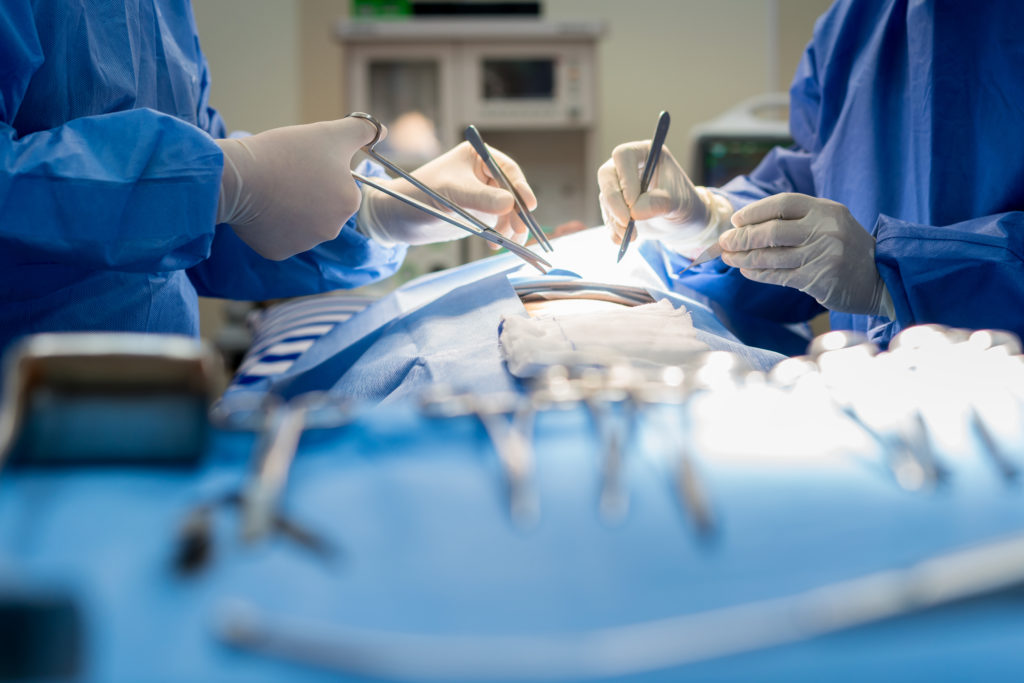
By Fred Schulte | KHN.org
Cristina Martinez’s spinal operation in Houston was expected to be routine. But after destabilizing her spine, the surgeon discovered the implant he was ready to put in her back was larger than he wanted to use — and the device company’s sales rep didn’t have a smaller size on hand, according to a report he filed about the operation.
Dr. Ra’Kerry Rahman went ahead with the operation, and Martinez awoke feeling pain and some numbness, she alleges. When Rahman removed the plastic device four days later and replaced it with a smaller one, Martinez suffered nerve damage and loss of feeling in her left leg, she claims.
Martinez is suing the surgeon, implant maker Life Spine Inc., and its distributor and sales representatives, alleging their negligence led to her injuries because the right part wasn’t available during her first surgery. All deny wrongdoing. The case is set for trial in November.
The lawsuit takes aim at the bustling sales networks that orthopedic device manufacturers have built to market ever-growing lines of costly surgical hardware — from spinal implants to replacement knees and artificial hips commonly used in operations. Sales in 2019 topped $20 billion, though covid-19 forced many hospitals to suspend elective surgeries for much of last year.
Device makers train sales reps to offer surgeons technical guidance in the operating room on the use of their products. They pay prominent surgeons to tout their implants at medical conferences — and athletes to offer celebrity endorsements. The industry says these practices help ensure that patients receive the highest-quality care.
But a KHN investigation found these practices also have been blamed for contributing to serious patient harm in thousands of medical malpractice, product liability and whistleblower lawsuits filed over the past decade.
Some patients allege they were injured after sales reps sold or delivered wrong-size or defective implants, while others accuse device makers of misleading doctors about the safety and durability of their products. Six multi-district federal cases have consolidated more than 28,000 suits by patients seeking compensation for injuries involving hip implants, including painful redo operations.
In other court actions, patients and whistleblowers repeatedly have accused device companies of failing to report injury-causing defects to federal regulators as required — or of doling out millions of dollars in illegal kickbacks to surgeons who agreed to use their products. Device makers have denied the allegations and many such cases are settled under confidential terms.
At least 250 companies sell surgical hardware, and many more distribute it to doctors and hospitals across the country. Spine companies alone obtained more than 1,200 patents for devices in 2018, according to an industry report. Many come to market through a streamlined Food and Drug Administration process that approves their use because they are essentially the same as what is already being sold.
“In orthopedics, we are inundated with a multitude of new implants that debut each year,” Dr. James Kang, chairman of the orthopedic surgery department at Brigham and Women’s Hospital, remarked at a Harvard Medical School roundtable discussion published in 2019.
Kang said surgeons often rely on industry “reps” in the operating room for guidance because it is “usually burdensome and difficult” for surgeons to know “all of the intricate details and nuances” of so many products.
Martinez’s lawsuit says the process went awry during her May 2018 spinal fusion in Houston, an operation in which an implant is inserted into the spinal column to replace a worn or damaged disc.
Martinez was under anesthesia, with her spine destabilized, when Rahman discovered the Life Spine surgical kit did not contain any implants shorter than 50 millimeters, or about 2 inches. That was too large, according to the complaint. Martinez, a former day care worker, blames her injuries on the redo operation, which replaced the implant with a 40 mm version Life Spine supplied later.
Through his lawyer, Rahman declined to comment. In court filings, the surgeon has denied responsibility. His operating notes, according to court pleadings, say he had ordered “all lengths available” of the implant through a Life Spine distributor and its sales reps. In a June court filing, Rahman contends the “small area of leg numbness experienced by Ms. Martinez was a known complication of the first surgery … and was not the result of any alleged negligence.”
In the court filing, Rahman also argues it was “appropriate” for him to rely on the sales reps and hospital staff to “inform him as to whether all materials and equipment needed for surgery were available.”
Illinois-based Life Spine also denies blame. In court filings, it says the sales reps initially ordered a sterile kit that included only implants from 50 mm to 55 mm long, which it duly shipped to Houston.
At the time of Martinez’s operation, Life Spine was the target of a sealed whistleblower lawsuit accusing it of paying improper consulting fees and other kickbacks to more than 60 surgeons who agreed to use its wares. Court records in the whistleblower case identify Rahman as one of the company’s paid consultants, although he and the other surgeons were not named as defendants. Life Spine and two of its executives settled the matter in November 2019 by paying a total of nearly $6 million. An orthopedic surgery expert hired by Martinez for her suit faulted Rahman for not making sure he had the right gear “prior to the start of surgery,” according to his report. The expert also criticized the sales rep for failing to bring “all available lengths to the procedure or to inform Dr. Rahman that the necessary implants were not available,” court records show. The sales rep and distributor denied any blame, arguing in court filings that they “met all applicable standards of care.”
Continue reading about the aggressive sales tactics that have allegedly led to the use of defective products on patients.

